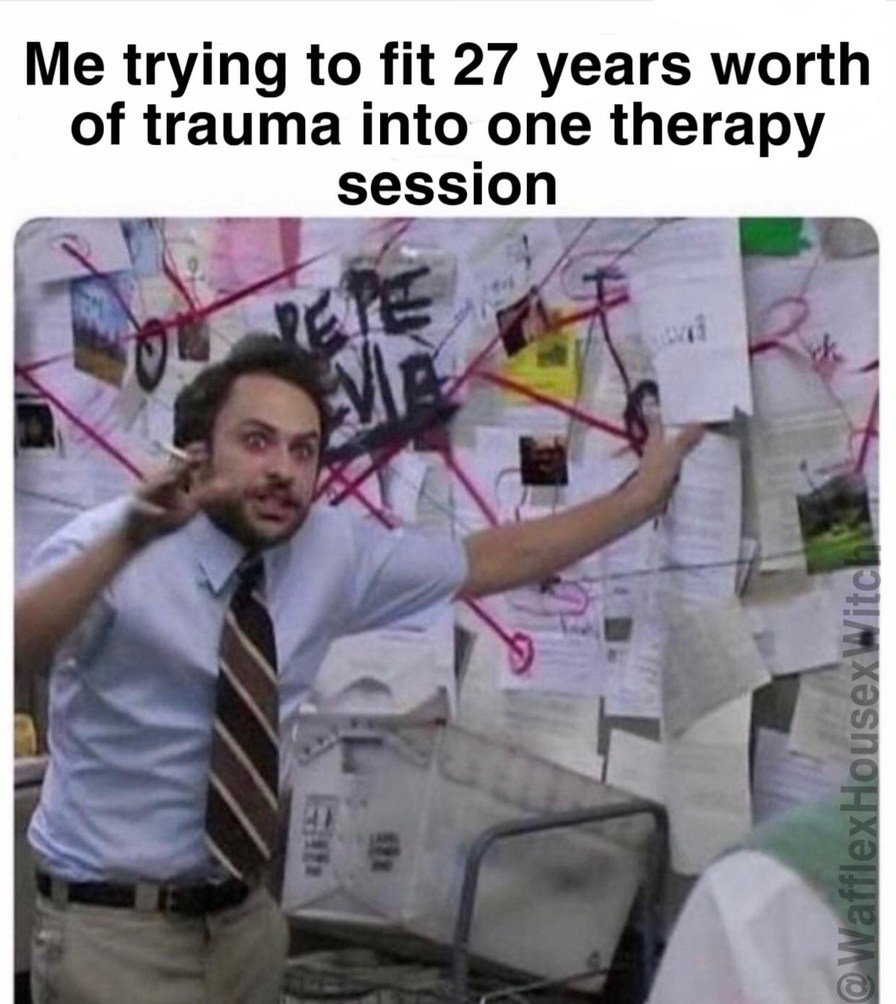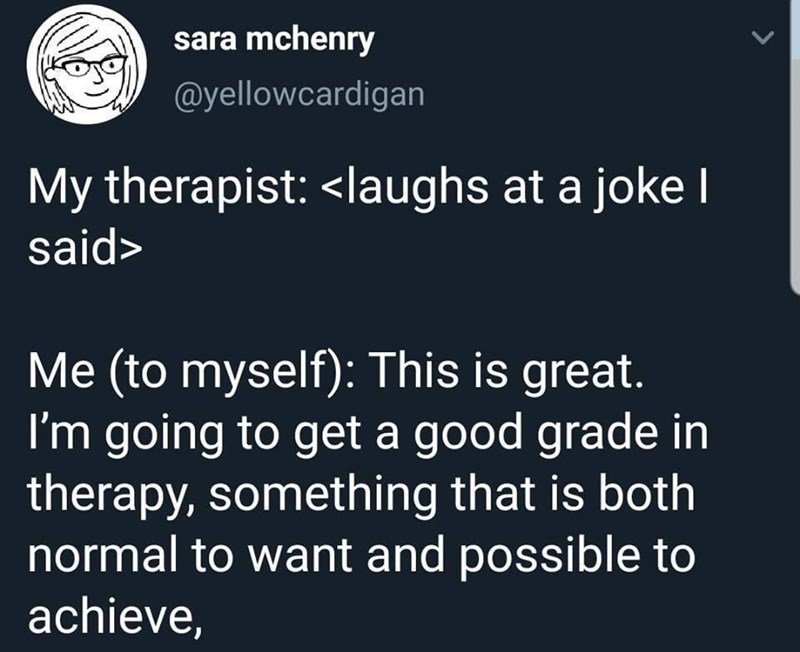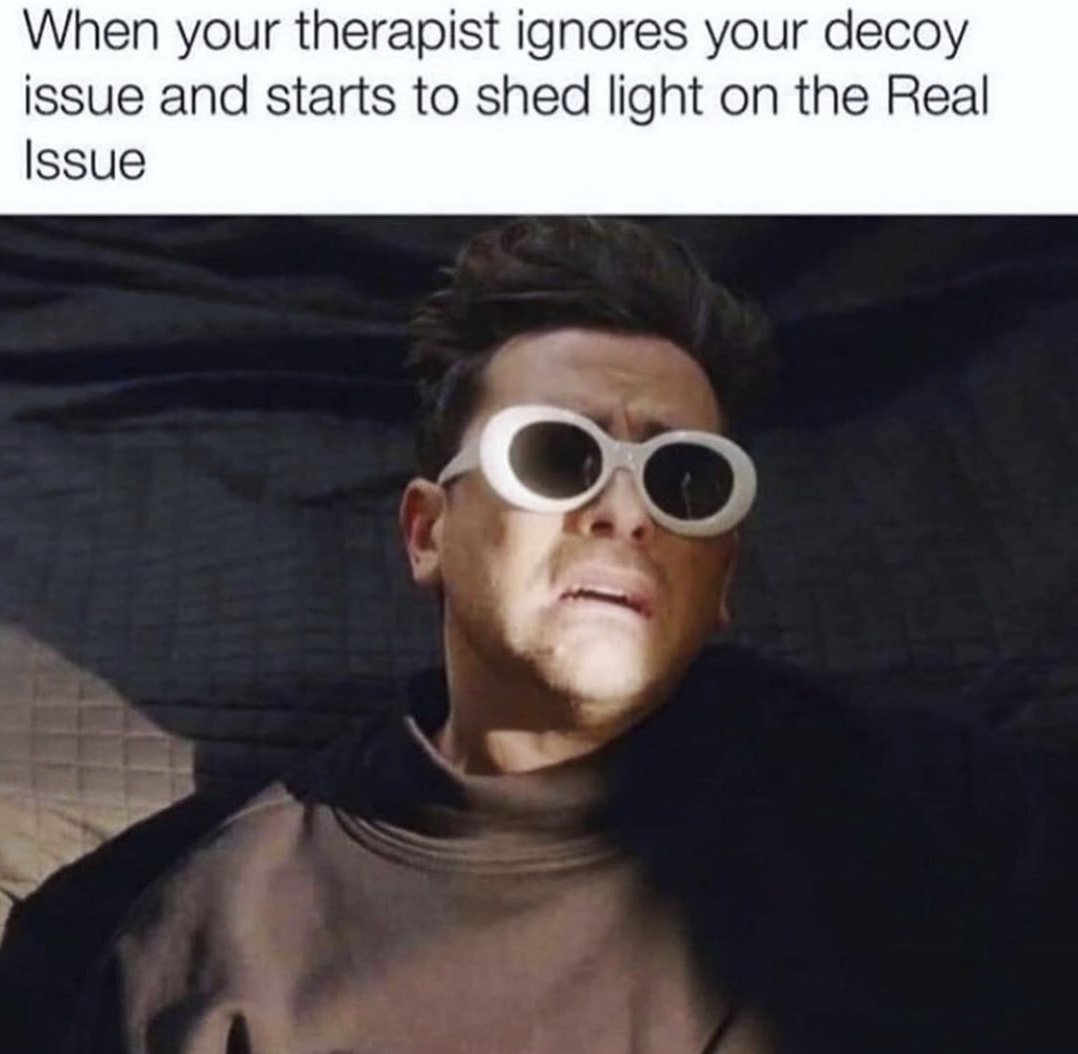Therapy Approach
Culturally responsive, trauma informed therapy for all parts of you.
Note: There are no guarantees counseling will solve all problems, or how quickly changes will occur. There are no miracle cures, but it improves the odds, particularly if you start early.
Therapy Approach
how i approach therapy
-
You’ve tried traditional talk therapy before and want something different.
I offer somatic and experiential therapy.
I’m an active therapist, rather than a passive therapist.
I may interrupt you, challenge you, offer you a different perspective, teach you skills, provide you education, and ask you to try other ways of thinking or relating.
Sometimes, I curse and laugh.
Because therapy is so individualized and I’m imperfect, I’m receptive to feedback, strive to be flexible, apologize when I make a mistake, and repair when disagreements and/or ruptures occur.
I also regularly check in with you to see if we are working toward your goals.
I believe the best therapy for you is the one we create together, taking into account your preferences, personality, culture, as well as my skill, experience, and variety of therapeutic techniques.
-
My job is to help you face conflicts so you can better understand yourself, feel more free and less stuck, and integrate past wounds that keep you stuck.
Therapy is a relationship where we’ll work together to achieve your goals.
My job is not to tell you what to do or “fix” you.
-
A session may include:
Noticing and interrupting negative self-talk/thoughts/beliefs/stories/narratives
Provide you education on what may be occurring
Offer you my observations around patterns and dynamics
Challenging you at times with compassion and curiosity
Inquiring about your desires, values, and needs
Continued challenges, barriers, difficulties
Learning self management skills
Facilitating underlying emotions
Regulating anxiety
Practicing slowing down and curiosity of your internal world
Developing more acceptance and compassion
Exploring your relationships outside of session.
And more
Please be open to feedback and change if you want your life to be different. I’ll also be open to learning, flexible, and adaptive.
Life changing therapy is difficult, uncomfortable, slow, and at times, painful.
Change often happens at the intersection of discomfort, patience, and repetition.
While healing work is rarely comfortable and easy, I promise to hold you with compassion, respect, and kindness.
-
Beginning & Check In
5-10 minutes
Saying hello, reviewing past 1-2 weeks.
Easing into the discomfort.
Updates and logistical items.
Middle & The Work
40-50 minutes
Goal consensus: Focusing on what you want to work on.
Ending & Review
5-10 minutes
Saying goodbye and summarizing.
Feedback
Compartmentalizing, getting ready for the rest of the day, resourcing, grounding yourself.
Assigning optional relational homework.
-
WE MIGHT BE A GOOD FIT IF YOU VALUE:
Being challenged and interrupted at times
Rather than venting every session and have me nod in silence; I believe there is a limit to how much endless validation can help you grow
Are active in therapy
Come in with things to talk about, practice skills/tools outside session, open to trying new things
Direct communication and soliciting feedback
Therapy is most helpful when you communicate with me your disagreements, your requests/wants, and when you give me feedback on what is and isn’t helpful. I’ll do the same.
Dialectic or balance
I try to balance things in therapy: balancing validation with challenge, balancing insight with learning skills, listening with interrupting, and acceptance with change
Other methods outside of talk therapy
Such as mindfulness, experiential therapy, psychodrama, somatic therapy
The healing power of relationships
Most people bring their patterns/dynamics into the therapeutic relationship. If you tend to avoid conflict outside of therapy, you’ll most likely avoid tension and disagreement with your therapist.
We will use our therapeutic relationship as a template for learning new healthy experiences and opportunities for repair and growth
Want to learn how to become your own therapist long term
My goal is for you to gain insight and understanding into why you do what you do, interrupt unhelpful cycles of sabotage, and learn skills/tools to manage future conflicts
WE MIGHT NOT BE A GOOD FIT IF YOU:
Expect perfection
I’m not perfect, will make mistakes, and will communicate directly when this occurs toward resolution
Expect me to do the bulk of the work
Examples: Solve your problems, tell you what to do, consistently have to ask you what you want to work on in session, am more curious about you than you are of yourself
Cancel sessions often
Therapy works best with consistency
Don’t take accountability
Confronting our shadows require honesty about our humanity and limitations
Don’t liked being challenged
Of course, I will be gentle and compassionate, but in my experienee, endless validation is not going to be helpful long term
Demand instant change within 3-4 sessions
While relief can come in a few sessions, long term change requires compassion, practice, patience, and repetition
Want to get rid of all your feelings and thoughts
Pain is inevitable in life
My goal is for you to learn to accept and manage life stressors, pain, and grief with more compassion, nuance, and acceptance.
If we get rid of painful feelings and thoughts, we also then will have a difficult time accessing joy, love, and peace. What we resist persists.
Moreover, there are things in life that cannot be forgotten, forgiven, or rid of such as the loss of a loved one or traumatic experiences
Aren’t interested in exploring your past, childhood, or upbringing
There are other therapists who focus only on the present moment with an emphasis on skill building and generating quick solutions that may be a better fit (CBT, DBT, ACT)
-
Core components of AEDP include:
Practicing curiousity
Slowing down when you rush
Asking you to go inside of your body
Feeling your emotions
Healing past wounds through processing unreleased experiences/memories rather than using defensive tactics (distraction, numbing, intellectualization, internalization, dissociation, etc.) that keep you stuck
The goal is to undo aloneness (self reliance) and move toward an authentic and stronger sense of Self while connecting with others.
Click here to learn more about AEDP.
-
We have many parts inside of us. Some parts fight with one another keeping us “stuck”.
This can show up as sabotage, trauma repetition, exhaustion, addictive tendencies, judgement, criticism, guilt, anxiety, and shame.
I’ll help you understand why you do what you do and learn practical skills you can use when overwhelmed.
The goal of IFS to integrate all these fractured parts so you can access more of your true Self which includes:
Self love
Self acceptance
Self worth
Self confidence
Self esteem
Click here to learn more about IFS.
-
I’ll inquire about your relationships and how this impacts how you see your yourself, trust others, and relate to intimacy.
This can show up as avoidance, distraction, fear, anxiety, shame, guilt, etc.
My job is to gently point these patterns out and provide you new ways of relating so you can learn:
Healthy boundaries (how to say no without guilt & setting limits)
Assertive communication (ask for what you need)
Ways to express your emotions (feeling emotions rather than dealing with thoughts)
Click here to learn more about EFT.
-
TIF focuses on co-creating a therapeutic space based on safety, choice, trust, collaboration, respect for diversity, and empowerment.
You are in control of our sessions.
The goal is for you to understand the nuances of trauma, pathways toward healing, how to manage triggers and moments of dysregulation, increase flexibility, be more comfortable with uncertainty, feel more embodied and safe, step into your power, instill hope, and create a life worth living.
Click here to learn more about TIFC.
-
Individual therapy is one part toward healing.
There must be larger, systemic changes in our families, relationships, communities, society, and world.
Decolonizing therapy means I am constantly unlearning, learning, and relearning.
This can show up in session as
Inquiring about how systemic issues like racism, sexism, classism, transphobia, ageism, etc. impacts your life
Practicing curiosity
Understanding your unique context and experiences through historical, political, familial, and generational legacies
Collective healing vs. individualism/self-reliance
Challenging incomplete stories/narratives/beliefs with more complete beliefs
Centering the healing power of relationships, community, and cultural heritage
Encouraging you to take action outside of session as appropriate toward personal values
Beyond Eurocentric models of learning and being
Somatic and mind/body ways of healing
Showing up as my authentic and congruent Self (versus as a neutral/blank slate)
The wounded healer as guide
lf disclosing and sharing with you my personal experiences if I feel it would benefit you
Doing my own work by attending my own personal therapy and consultation
Click here to read more Decolonizing Therapy.
-
Learn why you do what you, face the truth with more courage, and learn to interrupt patterns of self sabotage and getting in your own way.
Psychodynamic therapy helps clients gain insight, and increase self awareness.
This therapy approach focuses on getting into the root of issues rather than the surface.
Common issues psychodynamic therapy can help you with:
Identifying reoccurring patterns and dynamics that are keeping you stuck
Understand how your past shapes your present reality
Becoming conscious of defense mechanisms/protective strategies and reframing them
Having new and corrective emotional experiences
Increasing integration and cohesion of your sense of Self
Integrating split off parts of your personality
-
As a consumer of therapy, it is your responsibility to do your due diligence and research what types of treatment you want to engage in.
A list of therapeutic modalities/approaches:













